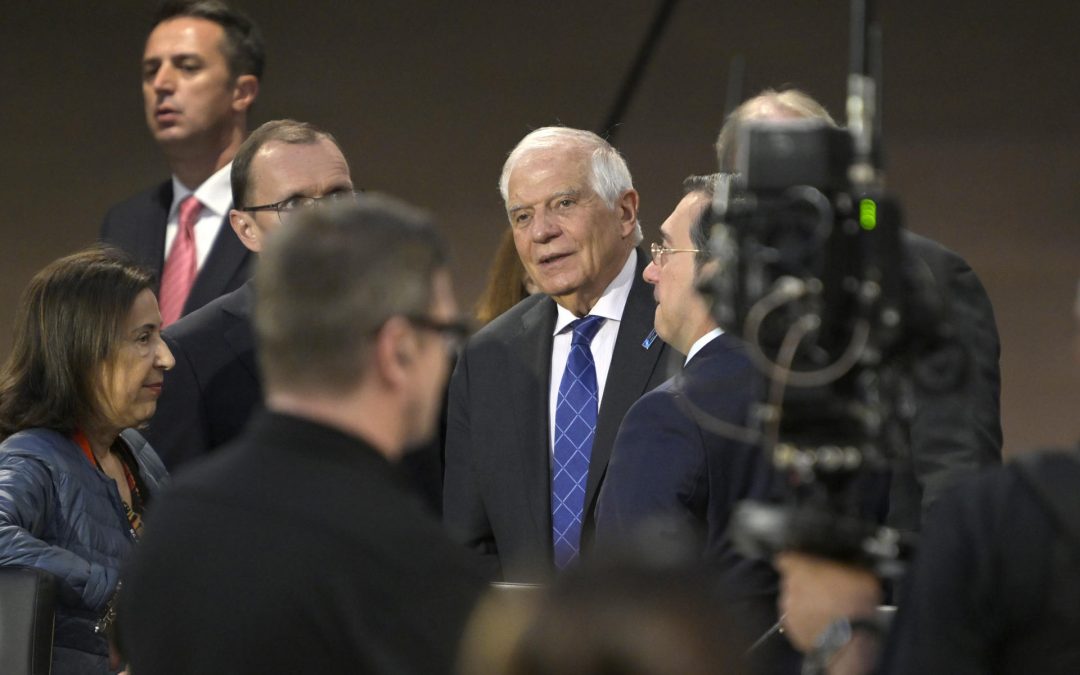Washington – The head of European diplomacy, Josep Borrell, sees the US pressure on the Israeli leader, Benjamin Netanyahu, in the current war in Gaza as insufficient and admits the EU’s discomfort with the attitude of Hungarian Prime Minister Viktor Orbán and his recent trips to Moscow and Beijing.
In an interview with EFE in Washington, where he is participating in the NATO summit that concludes this Thursday, Borrell reviews the main global challenges from the perspective of the European Union: the war in Gaza, the United States elections, electoral observation in Venezuela, and Orbán’s travels.
US pressure on Netanyahu “has not been sufficient”
In the opinion of the High Representative of the European Union (EU) for Foreign Affairs and Security Policy, the United States’ pressure on Israeli Prime Minister Benjamin Netanyahu “has not been sufficient” to stop the war in Gaza and he recalled that Washington has more drastic measures to influence Israel, such as the restriction of arms sales.
“Diplomatic pressure has not been sufficient, it remains to be seen if they are willing to adopt other measures. In the past, they were taken,” said Borrell, referring to the arms sale restrictions imposed by previous Republican presidents like Ronald Reagan and George H.W. Bush.
Specifically, Reagan in 1981 suspended a strategic agreement between the US and Israel to show his rejection of the annexation of the Golan Heights. For his part, Bush in 1991 asked Congress to delay the debate on a loan to Israel in reaction to settlements theoretically intended for Jews leaving the Soviet Union.
Borrell, however, did not go so far as to say that the Biden administration should restrict military aid to Israel. “Everyone knows what they have to do, but it is evident that diplomatic pressure so far has not been sufficient,” he simply said.
Trump was “right” to ask for more spending for NATO
During the interview, Borrell considered that former US President Donald Trump (2017-2021) was “right” when in the White House he urged NATO countries to increase their defense spending.
“Trump, in his own way and with his unique style, issued a warning to Europeans that, after the war in Ukraine, has proved correct. That is, Europeans have neglected our security, especially our defense capabilities,” he stated.
Borrell recalled how after the end of the Cold War, military spending ceased to be a priority in Europe and then this situation worsened with the euro crisis between 2009 and 2016, as it was “politically easier to reduce arsenals than to cut pensions.”
However, Russia’s increasingly aggressive attitude, including the annexation of Crimea in 2014, has led NATO members to commit to increasing military spending, so the Alliance estimates that 23 countries will exceed or meet the goal of spending 2% of their GDP on defense this year.
Revocation of the invitation to observe elections in Venezuela
On the other hand, Borrell also referred to Venezuela’s decision to revoke the EU’s invitation to observe the presidential elections on July 28.
“I believe that the European Union would have provided a very important added value, and I deeply regret that the Venezuelan government did not want us to be there,” he said.
According to the Venezuelan government, more than 635 international observers have confirmed their visit to Venezuela to witness the electoral process, including members of the Carter Center, founded by former US President Jimmy Carter (1977-1981).
“Deep discomfort” over Orbán’s trips
Finally, Borrell stated that there is a “deep discomfort” in the European Union over the recent trips by Hungarian Prime Minister Viktor Orbán to Russia and China, in what he has called a “peace mission” for Ukraine.
“There is deep discomfort in the European Union about this behavior,” he said.
A few days after assuming the rotating presidency of the EU Council on July 1, Orbán, the member of the community club closest to the Kremlin, has visited Kiev, Moscow, Beijing, and Washington in what he has described as a “peace mission” for the war in Ukraine. (July 11)
 go to the original language article
go to the original language article
